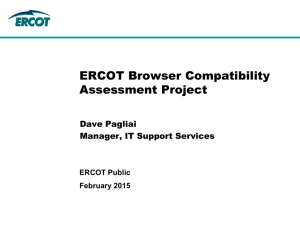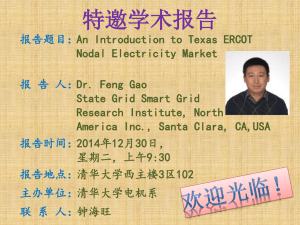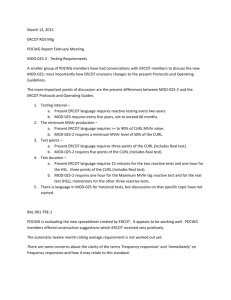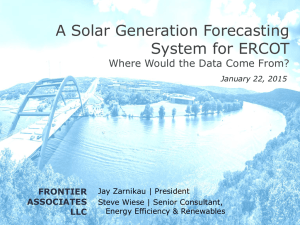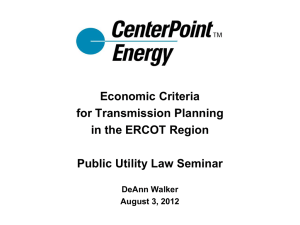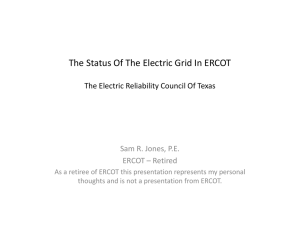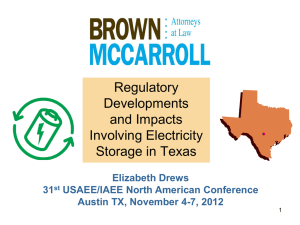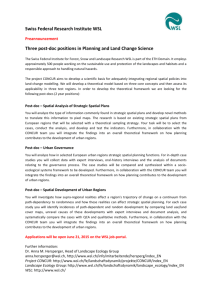PIR003 - Market Notice and Posting
advertisement
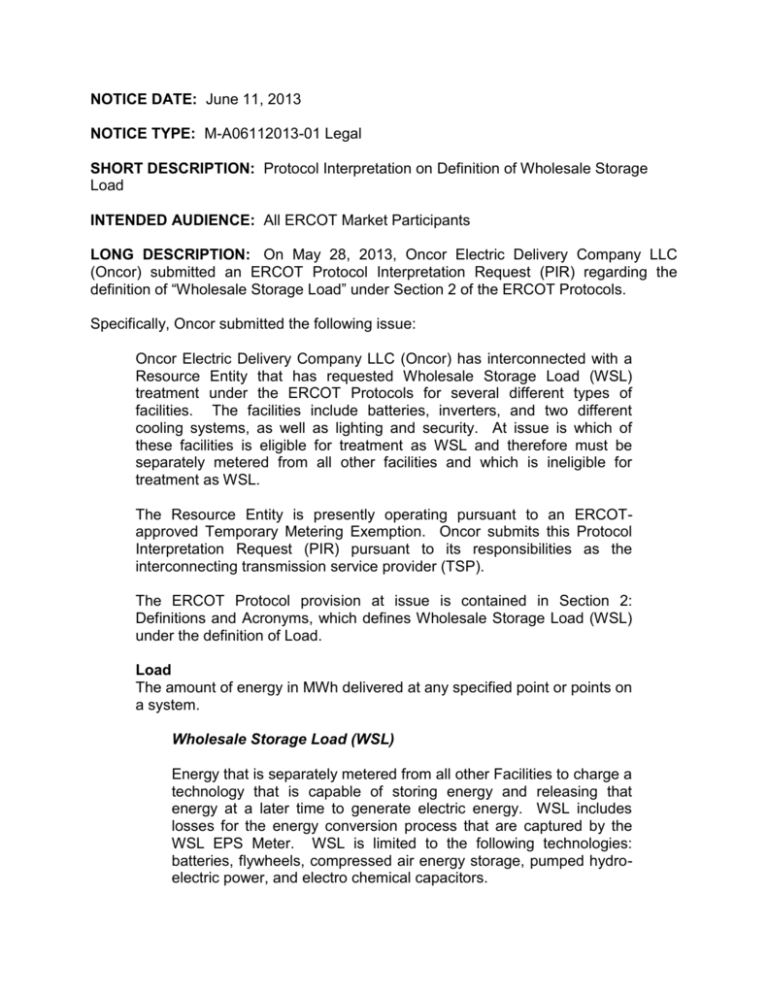
NOTICE DATE: June 11, 2013 NOTICE TYPE: M-A06112013-01 Legal SHORT DESCRIPTION: Protocol Interpretation on Definition of Wholesale Storage Load INTENDED AUDIENCE: All ERCOT Market Participants LONG DESCRIPTION: On May 28, 2013, Oncor Electric Delivery Company LLC (Oncor) submitted an ERCOT Protocol Interpretation Request (PIR) regarding the definition of “Wholesale Storage Load” under Section 2 of the ERCOT Protocols. Specifically, Oncor submitted the following issue: Oncor Electric Delivery Company LLC (Oncor) has interconnected with a Resource Entity that has requested Wholesale Storage Load (WSL) treatment under the ERCOT Protocols for several different types of facilities. The facilities include batteries, inverters, and two different cooling systems, as well as lighting and security. At issue is which of these facilities is eligible for treatment as WSL and therefore must be separately metered from all other facilities and which is ineligible for treatment as WSL. The Resource Entity is presently operating pursuant to an ERCOTapproved Temporary Metering Exemption. Oncor submits this Protocol Interpretation Request (PIR) pursuant to its responsibilities as the interconnecting transmission service provider (TSP). The ERCOT Protocol provision at issue is contained in Section 2: Definitions and Acronyms, which defines Wholesale Storage Load (WSL) under the definition of Load. Load The amount of energy in MWh delivered at any specified point or points on a system. Wholesale Storage Load (WSL) Energy that is separately metered from all other Facilities to charge a technology that is capable of storing energy and releasing that energy at a later time to generate electric energy. WSL includes losses for the energy conversion process that are captured by the WSL EPS Meter. WSL is limited to the following technologies: batteries, flywheels, compressed air energy storage, pumped hydroelectric power, and electro chemical capacitors. Pursuant to Public Utility Commission (PUC) Substantive Rule 25.503(i), Official Interpretations and Clarifications Regarding the Protocols, Electric Reliability Council of Texas, Inc. (ERCOT) provided a copy of the PIR to PUC Staff upon receipt and further consulted with PUC Staff before issuing this Protocol Interpretation. After review of PUC Order, dated March 29, 2012, in Project No. 39917, Rulemaking on Energy Storage Issues, and of Nodal Protocol Revision Request (NPRR) 461, Energy Storage Settlements Consistent with PUCT Project No. 39917, approved by ERCOT Board on December 11, 2012, ERCOT provides the following guidance on this issue. PUC Substantive Rule 25.501(m)(2) states, in part: “Wholesale storage occurs when electricity is used to charge a storage facility; the storage facility is separately metered from all other facilities including auxiliary facilities; and energy from the electricity is stored in the storage facility and subsequently re-generated and sold at wholesale as energy or ancillary services.” The definition of Wholesale Storage Load (WSL) in Section 2 of the ERCOT Protocols carries with it the same fundamental principle from PUC Substantive Rule 25.501(m)(2) – namely, “energy that is separately metered from all other Facilities to charge a technology that is capable of storing energy and releasing that energy at a later time to generate electric energy.” The Protocol definition further adds that “WSL includes losses for the energy conversion process that are captured by the WSL EPS Meter.” The Commission gave no indication in Project No. 39917 that certain auxiliary facilities that support the operation of the storage facility should be included in the wholesale storage treatment – whether part of the energy conversion process or not. As such, ERCOT must assume that all auxiliary facilities are excluded from the definition of WSL and treated as regular Load under the ERCOT Protocols until the Commission directs otherwise. Specifically, in the case of a battery, the energy used to charge the storage facility, which includes the losses from converting energy from alternating current (AC) to direct current (DC) and back to AC to the ERCOT Transmission Grid with the utilization of a transformer and an inverter is considered WSL for settlement treatment under the ERCOT Protocols. However, WSL does not include the energy associated with running the auxiliary facilities, such as cooling pump skids, heat exchangers, control room, fire suppression systems, lighting, and security, which are no doubt necessary to support the operation of the storage facility, but are not given WSL settlement treatment under the ERCOT Protocols. Therefore, these auxiliary facilities must not be captured by the WSL EPS Meter. ERCOT recognizes that each technology categorized under the definition of WSL may have a different energy conversion process. As such, ERCOT will have to evaluate each technology separately to determine which facilities fall within WSL for settlement treatment under the ERCOT Protocols. CONTACT: If you have any questions, please contact your ERCOT Account Manager. You may also call the general ERCOT Client Services phone number at (512) 248-3900 or contact ERCOT Client Services via email at ClientServices@ercot.com. If you are receiving e-mail from an ERCOT distribution list that you no longer wish to receive, please follow this link in order to unsubscribe from this list: http://lists.ercot.com. sa
